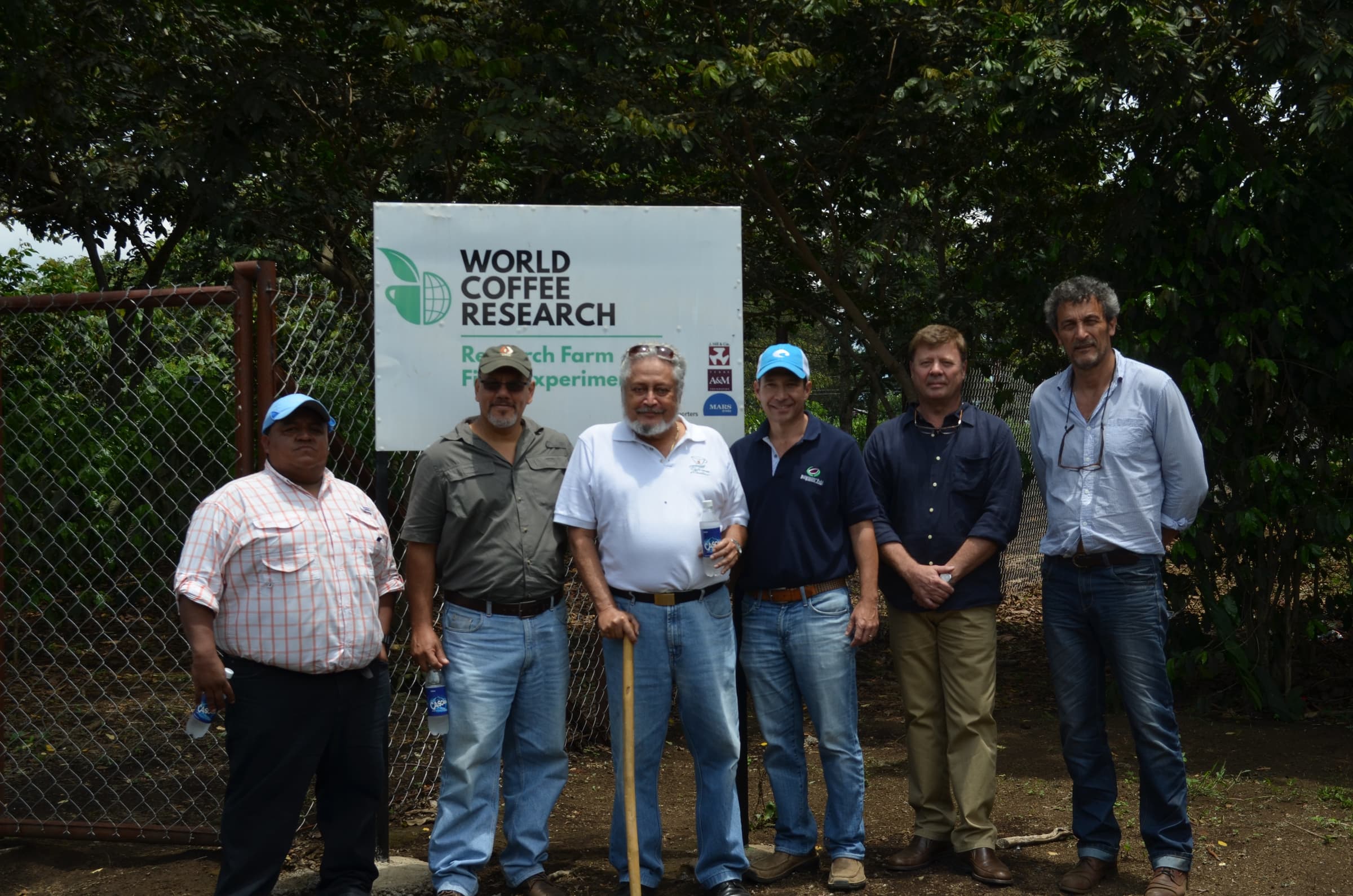World Coffee Research announces Central American regional headquarters in El Salvador
Deepening our commitment in a struggling coffee origin
At a national cup tasting event held today in El Salvador, World Coffee Research announced that it will establish a regional headquarters office in the country.
El Salvador was hit especially hard by an epidemic of a coffee disease called coffee leaf rust, or la roya, that ravaged Central America starting in 2012. The country was once a leading producer of coffee in the region, but production has fallen dramatically in recent years, in part because of the rust crisis. The country is also in the midst of a three-year drought.
World Coffee Research is already conducting multiple research projects in El Salvador and runs a seven-hectare research farm, donated to the global research nonprofit in 2015 by J. Hill & Company and members of the Aggie Association of El Salvador, Eduardo Palomo and Mario Mendoza.
The Central American headquarters office will coordinate World Coffee Research’s projects in the region, including a Central American coffee breeding program, a program to verify that coffee nurseries are producing healthy, genetically pure plants, and a program to install a network of on-farm trials of improved coffee varieties.
The announcement was made today at a cupping event highlighting coffee varieties that are resistant to coffee leaf rust. Only 11% of the coffee cultivated in El Salvador is resistant to leaf rust, according the national agricultural research organization, PROCAFE. The vast majority of the varieties grown in El Salvador are Bourbon, a traditional American variety, and Pacas, a natural Bourbon mutation. Neither can withstand rust at low altitudes where the fungal disease is prevalent. The event was co-organized by the national exporters and coffee taster’s associations, ASCAFE and ABECAFE, along with the country’s coffee council, Consejo Salvadoreño del Café, and agricultural research arm, PROCAFE.
The event, bolstered by the announcement of World Coffee Research’s long-term commitment to conduct research in the country on leaf rust and improved varieties, was intended to galvanize support for a national renovation program to replace aging coffee trees susceptible to leaf rust. In countries like Colombia and Honduras, similar programs have led to the rapid recovery of the countries’ coffee sectors.

World Coffee Research runs a seven-hectare research farm in El Salvador.